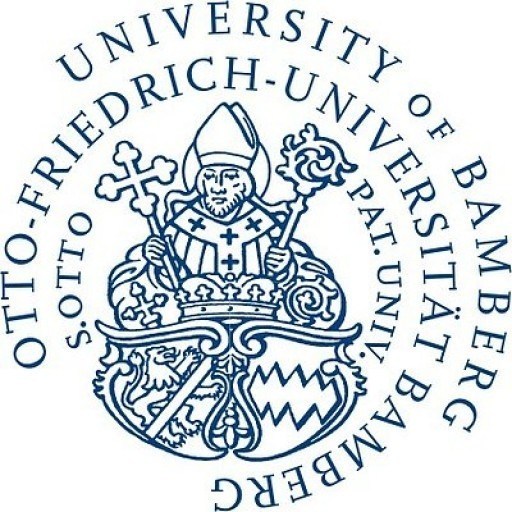Photos of university
The Religious Studies program at Saarland University offers students a comprehensive exploration of the diverse spiritual traditions, philosophical outlooks, and cultural practices that have shaped Europe’s religious landscape throughout history and into the modern era. This interdisciplinary degree combines insights from theology, anthropology, history, and sociology to foster a nuanced understanding of religious phenomena in various contexts. Students will examine major world religions such as Christianity, Islam, Judaism, Buddhism, and Hinduism, as well as indigenous and new religious movements that have emerged in recent centuries. The curriculum emphasizes critical analysis of religious texts, rituals, ethical systems, and institutional structures, enabling students to appreciate the complex roles religion plays in shaping individual identities and societal developments. Through a combination of theoretical coursework and practical engagement, participants will develop valuable skills in research, critical thinking, intercultural communication, and theological reflection. The program encourages an active learning approach, including excursions to religious sites, participation in interfaith dialogues, and engagement with religious communities on campus. Graduates of the Religious Studies program are well-prepared for careers in education, cultural management, social services, journalism, or further academic research. They will leave the program with a deep appreciation for religious diversity and an ability to analyze religious issues from multiple perspectives. This program’s unique focus on Europe’s religious history and contemporary developments offers students the opportunity to understand the ongoing influence of religion on European culture, politics, and societal values, making it an ideal choice for individuals passionate about exploring the multifaceted world of religion in a globalized context.
The Bachelor's degree program in Religions at Saarland University offers students a comprehensive introduction to the diverse religious traditions, beliefs, and practices that shape societies across Europe and beyond. This interdisciplinary program combines insights from theology, cultural studies, history, and social sciences to explore the origins, development, and contemporary significance of various religious movements. Students will examine major world religions such as Christianity, Islam, Judaism, Buddhism, and others, alongside lesser-known faiths and spiritual practices, gaining an understanding of their historical contexts and cultural expressions.
Throughout the program, students will engage with various methodological approaches, including textual analysis, ethnography, and comparative studies, to develop a nuanced understanding of religion as a social and cultural phenomenon. The curriculum emphasizes critical thinking and encourages students to analyze the role of religion in shaping identity, politics, ethics, and societal values. Key topics include religious texts and traditions, religious rituals and practices, religious art and symbolism, secularization, religious tolerance, and the interface between religion and modern society.
The program also offers specialized courses that focus on regional and contextual studies, exploring the unique religious landscapes within Europe and in global contexts. Students will have opportunities for practical engagement through field visits, internships, and intercultural exchange programs, enriching their academic knowledge with real-world experience. Students are encouraged to develop their academic research skills, culminating in a final thesis that addresses a specific question or issue related to religious phenomena.
Graduates of this program will be well-equipped for careers in education, cultural institutions, non-governmental organizations, media, and public policy, where an understanding of religious diversity and dialogue is increasingly important. Furthermore, the program serves as an excellent foundation for those wishing to pursue postgraduate studies in theology, religious studies, or related disciplines. Overall, the program aims to foster a respectful, informed, and critical understanding of religions in Europe, preparing students to engage thoughtfully with the complex religious dimensions of contemporary society.
The Bachelor of Arts in Religious Traditions in Europe at Saarland University requires students to complete a total of 180 ECTS credits over the standard course duration of three years. The program is designed to provide a comprehensive understanding of various religious traditions across European history, culture, and society. Students must undertake a combination of core modules, elective courses, and a final thesis. The core modules typically include Introduction to Religious Studies, History of European Religions, Comparative Religion, and Methodology in Religious Studies. Elective courses allow students to specialize in specific religious traditions such as Christianity, Judaism, Islam, or newer spiritual movements within the European context. Assessment methods vary but commonly consist of written exams, essays, presentations, and project work. The final year usually culminates in a research-oriented thesis that demonstrates the student's grasp of theoretical frameworks and practical insights. Additionally, students are encouraged to participate in internships and exchange programs to gain practical experience and intercultural competence. Language proficiency in at least one European language relevant to religious studies is often required, with courses available in German, English, and other European languages. Practical components may include field trips, seminars, and workshops hosted by experts in religious history, theology, anthropology, and sociology. The program aims to equip graduates with critical thinking skills, intercultural awareness, and a nuanced understanding of religious diversity in Europe, preparing them for careers in academia, education, cultural services, or intercultural consultancy. Students are also expected to undertake coursework that emphasizes both theoretical knowledge and empirical research methods, ensuring a well-rounded education in religious traditions on the continent.
The financing of the Religious Traditions in Europe program at Saarland University is primarily structured through a combination of tuition fees, state funding, research grants, and institutional support. As a public university in Germany, Saarland University benefits from the country's higher education funding policies, which generally aim to keep tuition fees at a moderate level to ensure accessibility for a broad range of students. Students enrolled in this program can expect to pay semester fees that cover administrative costs, student unions, and public transportation tickets, with the exact amount subject to change each academic year.
In addition to the standard fees, the program may be eligible for various scholarships and financial aid options offered by the university, government, or private organizations, aimed at supporting students pursuing studies in humanities and social sciences. These scholarships are often merit-based or need-based and can significantly offset living expenses and study costs. International students might have access to specific funding opportunities through exchange programs or bilateral agreements between Saarland University and partner institutions across Europe.
Research funding plays an important role in supporting faculty and student projects related to religious traditions, which can indirectly benefit students by providing access to funded research initiatives, conferences, and publication opportunities. The university also actively seeks grants from European Union programs and cultural foundations dedicated to fostering academic research in religious studies, which can sometimes include stipends or travel grants for students involved in research activities.
Furthermore, students may explore part-time employment opportunities both on and off-campus to finance their studies. Saarland University offers various student jobs, internships, and cooperation with local religious and cultural institutions, which can provide valuable practical experience and additional income sources.
In summary, financing the Religious Traditions in Europe program involves a combination of public funding, scholarships, research grants, and personal earnings. The university's supportive infrastructure, along with European and national funding schemes, is designed to facilitate access to higher education in this field and help students manage their financial needs throughout their studies.
The Religious Traditions in Europe program at Saarland University offers a comprehensive exploration of the diverse religious beliefs, practices, and historical developments across European societies. The program aims to provide students with an in-depth understanding of the major religious traditions that have shaped European culture, politics, and social structures over centuries. Courses typically cover Christianity, Judaism, Islam, and other faiths present within the continent, emphasizing their theological foundations, rituals, and cultural expressions. Students also examine the historical interactions between these religions, including periods of coexistence, conflict, and dialogue. The program often incorporates interdisciplinary approaches, integrating history, theology, anthropology, and sociology to offer a well-rounded perspective on religious phenomena. Through lectures, seminars, and field studies, students gain critical analytical skills and an awareness of contemporary issues related to religion in European contexts, such as secularization, religious minorities, and interfaith dialogues. The curriculum may also include comparative studies of religious texts, tradition-specific practices, and the impact of religion on art, literature, and political movements. Graduates of the program are well-equipped for careers in academia, intercultural and interfaith dialogue, public policy, or cultural institutions. The program reflects Saarland University’s commitment to fostering an understanding of religious diversity and promoting peaceful coexistence through academic inquiry and societal engagement. It is designed for students interested in religious studies, history, anthropology, theology, or related fields, and encourages active participation, critical thinking, and respect for different traditions. The program typically spans multiple semesters and is delivered in English or German, depending on the course offerings, with opportunities for international exchanges and internships. Overall, the Religious Traditions in Europe program aims to deepen students' knowledge of religious influences on European development and to nurture a nuanced understanding of the complex role religion plays in contemporary society.









